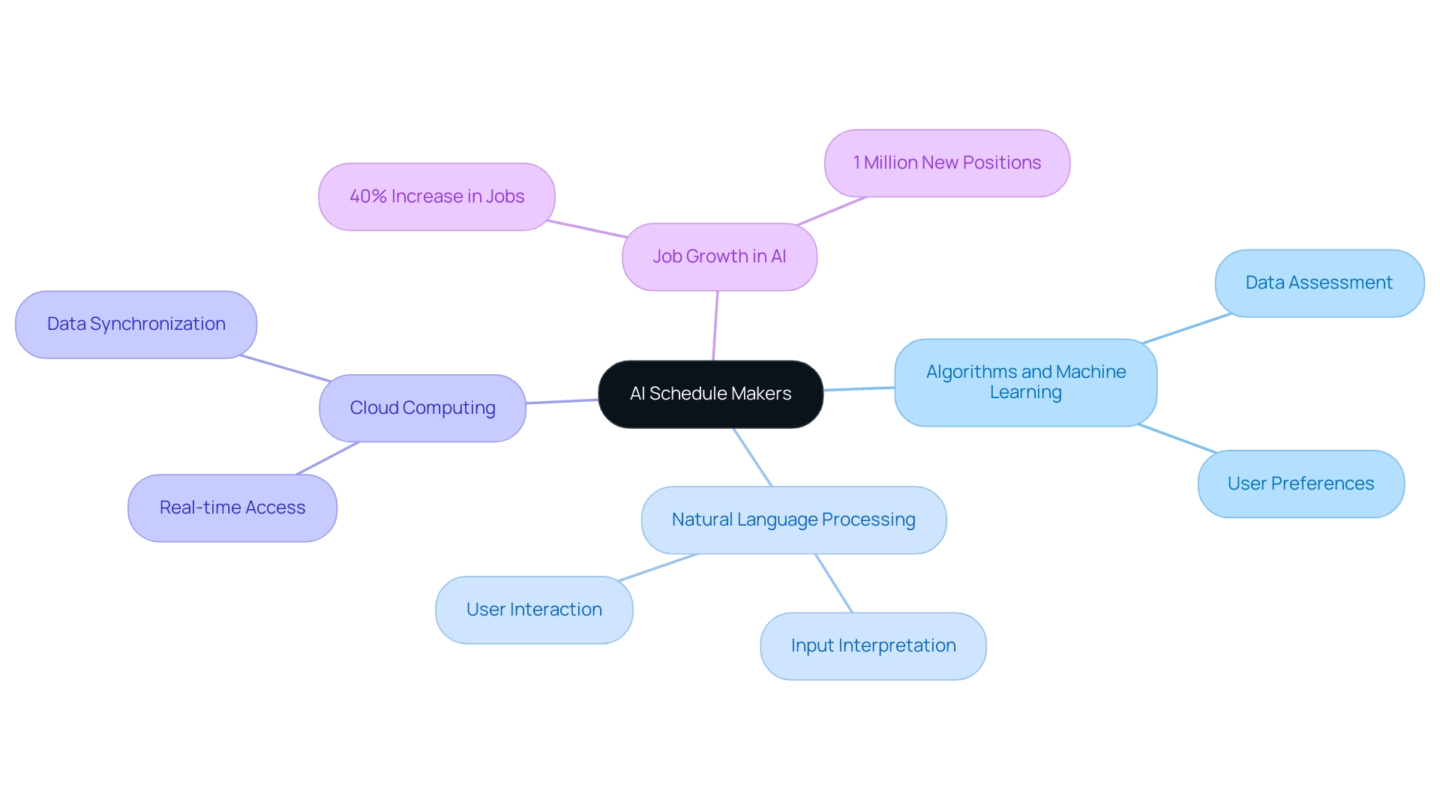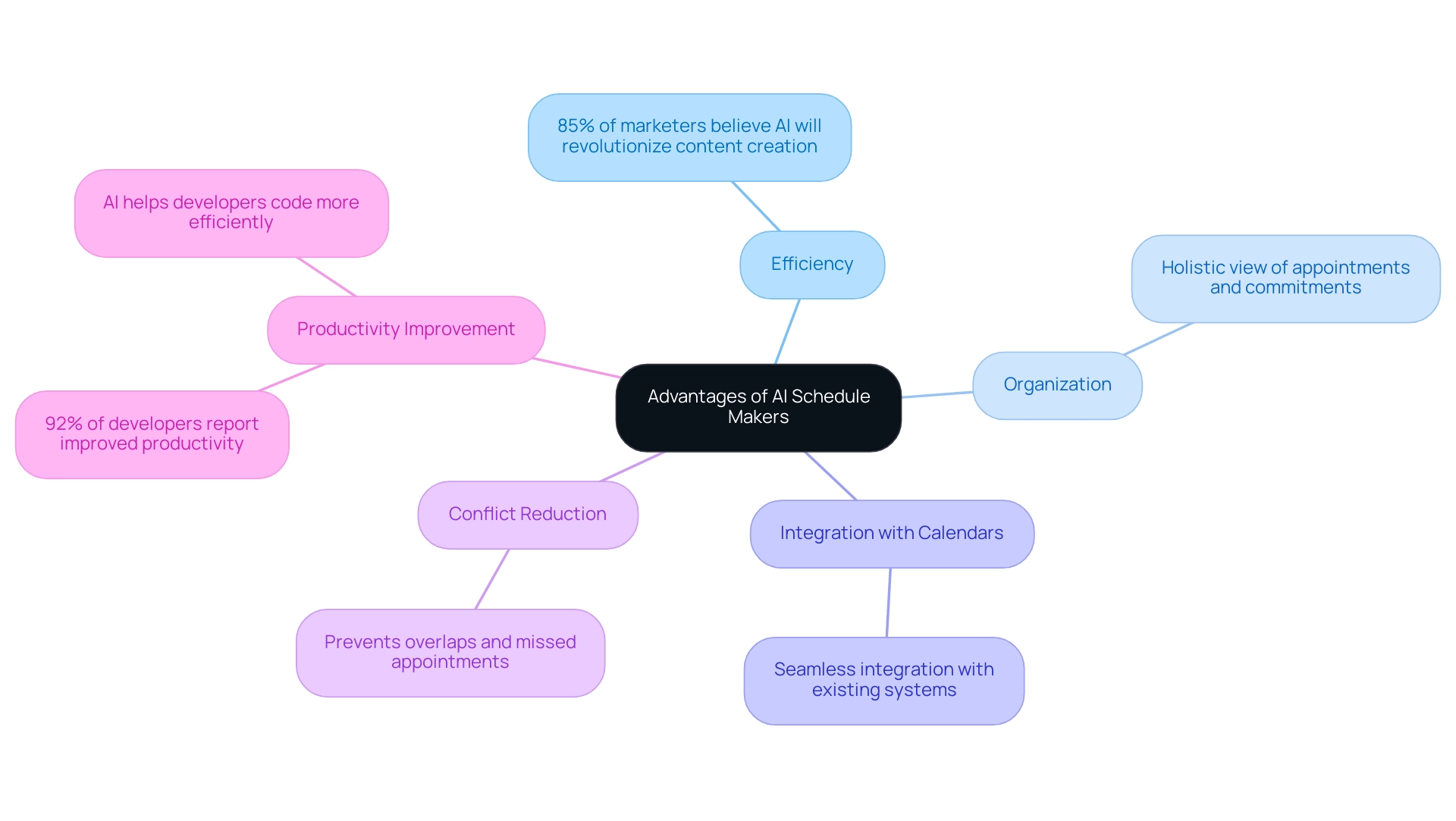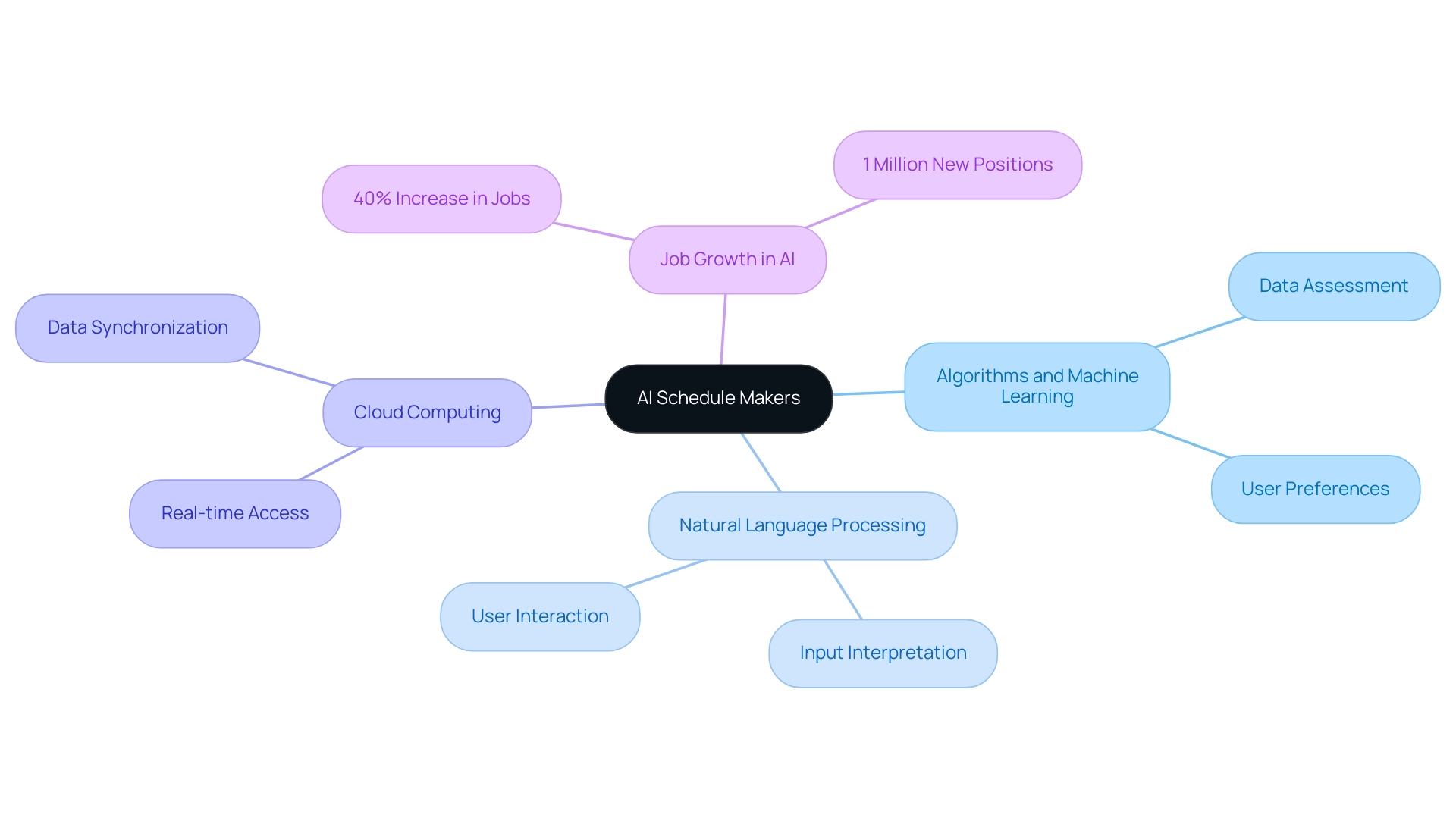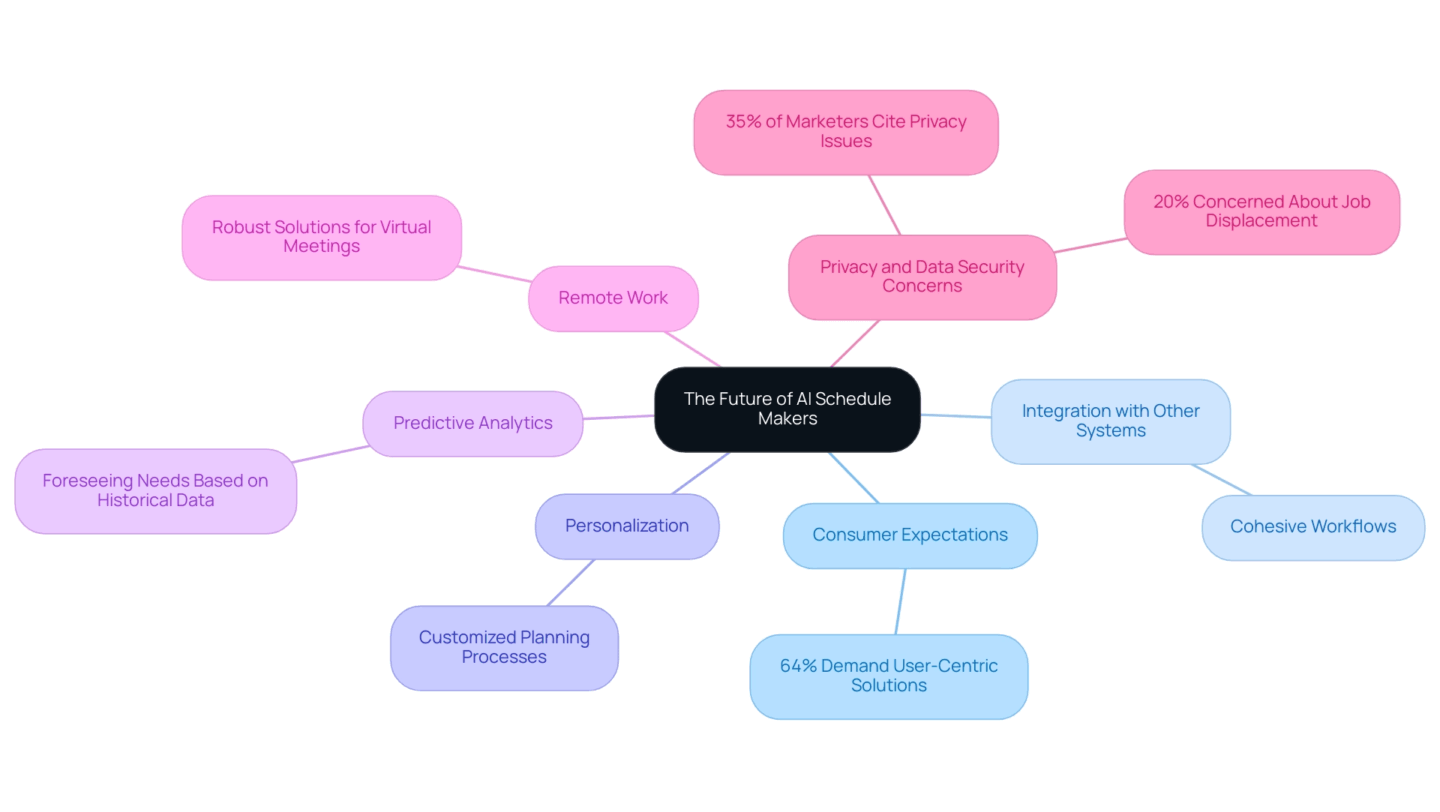What is an AI schedule maker? Understanding its role in modern time management

Time management has evolved. Enter AI schedule makers — a game-changer for individuals and organizations alike. These tools don’t just plan your day; they redefine how we handle time altogether. Powered by advanced algorithms and machine learning, AI scheduling tools automate the process, eliminate conflicts, and supercharge efficiency.
Here’s a number to make you think: 60% of organizations are projected to adopt AI scheduling tools by the end of 2024. Why? Because they don’t just save time — they optimize it. Whether you’re simplifying personal routines or streamlining professional workflows, these tools free you to focus on what really matters: strategic, high-impact tasks.
Let’s dig into how these tools work, why they’re revolutionary, and where they’re headed next.
Defining AI schedule makers: An overview
So, what exactly is an AI schedule maker? It’s a smart tool that removes the hassle from planning. By analyzing your preferences, availability, and even past habits, it automates meeting setups, task management, and calendar organization.
But it doesn’t stop at saving you a few clicks. AI scheduling tools make your time work harder for you. Businesses leveraging these tools have reported up to a 30% increase in meeting efficiency. AI identifies the best times for collaboration, avoids scheduling conflicts, and helps teams hit peak productivity.

Take Dashly, for example. This AI-powered platform doesn’t just handle schedules; it transforms workflows. Dashly automates 90% of appointment booking with high-quality leads. Sales teams no longer waste hours chasing down unqualified prospects. Instead, they focus on converting valuable leads. Dashly’s results?
- 75% lead-to-meeting scheduling rate
- 93% meeting attendance rate
These aren’t just numbers — they’re proof that AI tools can drive measurable business results.
The advantages of AI schedule makers in time management
AI schedule makers aren’t just convenient; they’re transformational. Let’s break it down:
- Eliminate scheduling conflicts. Integrated with your calendars and email systems, these tools prevent double-bookings and missed appointments.
- Boost productivity. By automating time management, you’re free to focus on priorities instead of logistics.
- Enhance collaboration. Teams align effortlessly, improving communication and workflow.
Here’s an example: A survey found that 92% of those using AI tools reported better collaboration and productivity. Why? Because AI eliminates the friction of manual coordination, letting people do their best work.

How AI schedule makers work: The technology behind the tools
At their core, AI schedule makers are built on powerful algorithms and machine learning models. They don’t just follow rules — they learn and adapt to how you work.
Key features:
- Natural Language Processing (NLP):
AI tools understand your inputs in plain language. Say, “Schedule a meeting with Sarah next Tuesday at 10 AM,” and it just happens. No more rigid commands or tedious setup. - Cloud Computing:
Real-time synchronization across devices keeps your calendar consistent. Add a meeting on your laptop, and it’s instantly on your phone — along with notifications, so you never miss a beat.
Here’s a stat to blow your mind:
The World Economic Forum predicts a 40% rise in AI and machine learning jobs, adding 1 million new roles. Far from replacing jobs, AI is creating them. This shift underscores how industries — including scheduling — are increasingly powered by AI.
The rise of AI positions illustrates its transformative impact across sectors, including time management.
This isn’t just hype. It’s happening now, and AI schedule makers are leading the charge.

Applications of AI schedule makers across different domains
AI schedule makers are making their mark across industries. Here’s how they’re being used:
Personal use:
- Manage daily tasks, appointments, and routines for a more balanced lifestyle.
Education:
- Help students and teachers plan classes, study schedules, and extracurriculars.
- Tools like Gradescope have reduced grading times by 70%, showing just how much efficiency AI can deliver in education.
Professional environments:
- Streamline meeting coordination and project timelines.
- Foster team collaboration with seamless calendar integration.
- Facilitate lead management process by automating meeting scheduling.
Research by Quizlet found:
- 51% of educators believe AI will yield positive outcomes in education.
- 49% already see workload improvements.
In professional settings, the story is no different. AI tools reduce friction, align teams, and enable better time management.
The future of AI schedule makers: Trends and innovations
The future of AI schedule makers is bright, fast-evolving, and consumer-driven. As technology advances, these tools are becoming more personalized, intuitive, and integrated into broader workflows.
Key trends:
- Enhanced Integration.AI tools are working alongside CRM systems, project management platforms, and other software for seamless workflows.
- Predictive Analytics. By analyzing historical data, AI tools will anticipate your needs—whether it’s scheduling follow-ups or blocking focus time.
Remote work:
With remote and hybrid work models on the rise, AI schedule makers are adapting to virtual meeting needs. Expect even more robust solutions for distributed teams.
Privacy & security:
One hurdle remains: 35% of marketers cite privacy concerns as a challenge when using AI. Solving this will be critical for widespread adoption.

Bottom line
AI schedule makers are rewriting the rules of time management. By automating the grunt work of planning and scheduling, they let you focus on what really matters.
The numbers don’t lie: Companies adopting these tools report measurable gains in productivity, efficiency, and collaboration. Tools like Dashly exemplify how AI-driven scheduling can transform workflows, deliver high-quality leads, and ensure teams spend their time wisely.
Looking ahead, the potential of AI planners will only grow. With advances in predictive analytics, tighter integrations, and more user-friendly designs, these tools are poised to become indispensable for individuals and businesses alike.
If you’re tired of being bogged down by logistics, maybe it’s time to let an AI schedule maker take the wheel.



![The ultimate guide to growth marketing in 2023 [explained by a growth hacker]](https://www.dashly.io/blog/wp-content/uploads/2023/04/The-ultimate-guide-to-growth-marketing-explained-by-a-growth-hacker-720x317.png)


![4 steps as Chief Marketing Officer at a new company [Expert guide]](https://www.dashly.io/blog/wp-content/uploads/2022/10/4-steps-as-Chief-Marketing-Officer-at-a-new-company-Expert-guide-720x317.jpg)
![21 proven tools for your 2025 marketing tech stack [Recommended by market experts]](https://www.dashly.io/blog/wp-content/uploads/2022/08/martech-stack-999-720x317.png)
